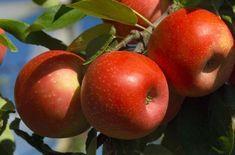
Apple growers and exporters globally are facing a problematic future following the ban of active post-harvest substance diphenylamine (DPA) in the European Union.
This is the first season that producers in the EU will not be able to use the active to help protect against scald and browning in long-term storage. However, it continues to be widely used in other major apple-growing countries in the southern hemisphere and the US, for example. The European Commission is also considering revising down the maximum residue level (MRL) for DPA and this is set to have an impact on senders from third countries.
Nigel Jenney, chief executive of the Fresh Produce Consortium, said: “We are encouraging our members to come to us with information. Unless we provide robust evidence to the EC, then they won’t change their view and could drive through a potentially much lower MRL which would affect those exporters sending to the UK. We are already talking to the CRD, the NFU and other interested parties, and we will also we will be holding a meeting soon with members.”
It was widely thought that UK growers did not rely on DPA, but it has emerged that Bramley producers, especially in Northern Ireland, use the substance. Growers in France, especially in the warmer areas in south-eastern and south-western regions, and particularly those producing Granny Smith and Ariane, are also dismayed at its delisting.
Daniel Sauvaitre of the French national top-fruit association, ANPP, said: “We are hoping to get a derogation to use for a year at least to be able to use DPA for 2012-13 and are continuing to ask our ministry of agriculture to act on our behalf, but so far there seems little hope of that.”
The ANPP is worried that Europe is divided on the issue; Germany, Belgium and the Netherlands are not concerned while producers in France, southern Italy, some in the UK and those in Spain are affected.
Sergio Gaspar, in charge of NPD at the Spanish office of post-harvest solutions specialist Decco, is pushing for more time. He said: “We are calling for the exceptional authorisation for DPA so that we can at least guarantee storage of apples this season and be able to evaluate possible alternatives.”



